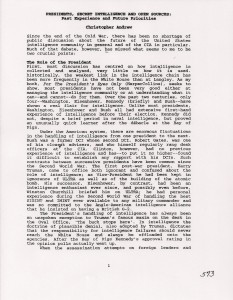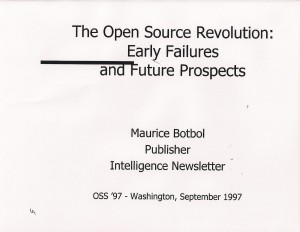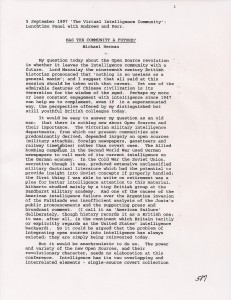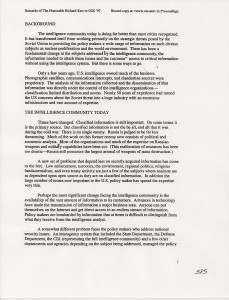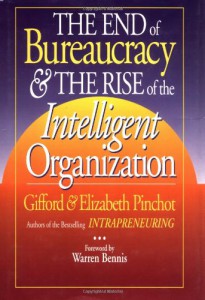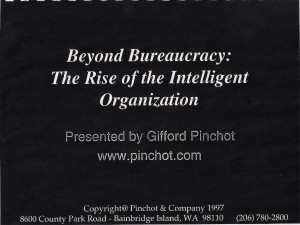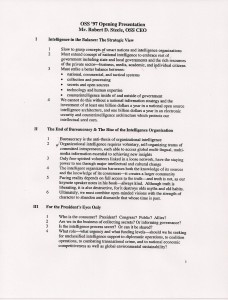The below reference and article was drafted by Robert Steele with some editorial assistance from Mark Lowenthal, who was briefly an employee of OSS before jumping to SRA International. The article draws on the experience of the Marine Corps Intelligence Center (MCIC) that was established by General Al Gray, USMC, then Commandant of the Marine Corps, largely to support expeditionary acquisition. The Army, the Navy, and the Air Force are all “big system” services, and while the Army has begun to learn how to “eat the tail” and reduce the logistics footprint (as well as the ground convey exposure and expense), the reality is that DoD acquisition remains totally hosed today, and 20,000 new people (as planned by Secretary of Defense Robert Gates) are not going to be effecive for three reasons:
1. DoD makes policy without regard to strategy or intelligence
2. DoD acquires systems without regard to strategy, lacking a strategic analytic model
3. DoD is long over-due for massive changes to Title 109 such that we have four proponents for Big War, Small War, Peace War, and Homeland Defense (each of the Services could be redirected appropriately) but–big but–the regional combatant commanders become BOTH the hubs for Whole of Government inter-agency planning, programming, and budgeting AND the primary proponents for what is needed in their theaters.
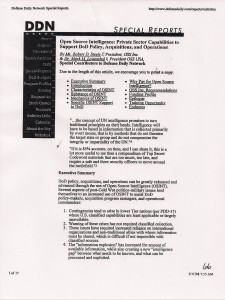
Should it not be crystal clear, the “butts in seats” approach in which contractors cost the taxpayer 250% of their salary is not sanctioned by this early article on how to fix intelligence support to acquisition. Small cells, a global grid of multinational sharing and sense-making partners, and the ability to “know who knows,” to apply strategic analytic tradecraft, and to produce “just enough, just in time, just right” Open Source Intelligence (OSINT) that either stands on its own or radically enhances all-source intelligence production, are the way to go. No one now providing OSINT under OMB Code M320 understaqnds how to do that.


